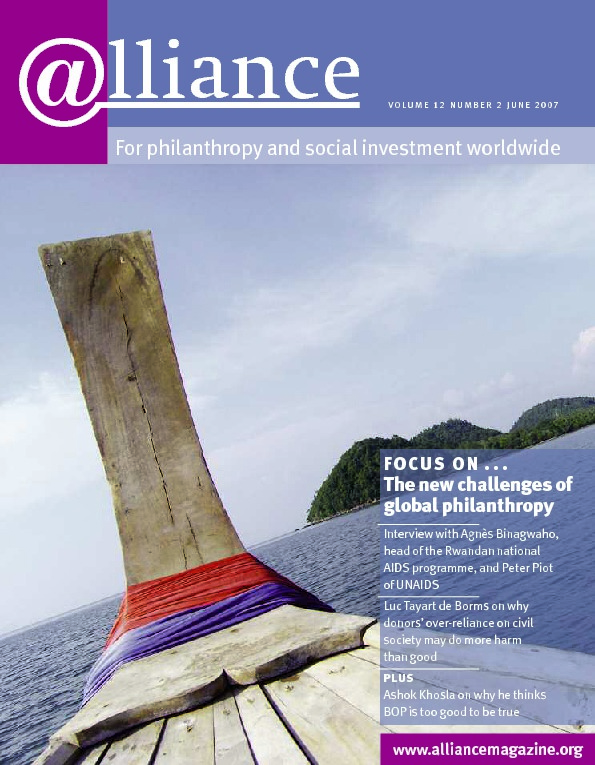The vast majority of America’s givers believe the bulk of their donations help those less fortunate than themselves but, according to a study commissioned by Google.org, less than one-third of the money individuals gave to non-profits in 2005 went to help the economically disadvantaged. Of the $250 billion in donations, less than $78 billion explicitly targeted those in need.
The research, carried out by the Center on Philanthropy at Indiana University, concluded that only 8 per cent of donations provide food, shelter or other basic needs. At most, an additional 23 per cent is directed to the poor, either by providing other direct benefits (such as medical treatment and scholarships) or through initiatives that create opportunities (such as literacy or job training programmes).
Source
Wall Street Journal Online
US Government plans to alter food aid policy run into opposition
The Bush administration has run into opposition in its efforts to try to change US law so that the country can use up to a quarter of the budget of its main food aid programme to buy food in developing countries during emergencies. Such a step could provide food aid faster in countries like Zambia, where food rations are in danger of running out. However, the proposal has run into stiff opposition from an alliance of agribusiness, shipping and charitable groups with financial stakes in the current food aid system, under which all food aid given by the US has to be grown in the US.
Source
New York Times, 7 April 2007
VP methods adopted to build US progressive movement
August Capital general partner Andy Rappaport and his wife Deborah have invested $1.5 million in a for-profit venture called the New Progressive Coalition (NPC) in order to influence public opinion and public policy, as conservative foundations have done so successfully in the past. NPC aims to use the web to build an infrastructure of think-tanks, connecting left-leaning organizations with investors who are keen to provide ongoing time and money. As with venture philanthropy organizations, shareholders will be able to measure their profits using a double bottom line: the monetary return that will keep the business afloat and the political return that will eventually build think-tanks to rival those on the political right.
Member organizations pay annual dues of up to $5,000 on a sliding scale, based on the size of their budgets. This allows them to be listed in the online ‘marketplace’ and gives them access to technical assistance and professional advice from NPC’s 58-person advisory team, drawn from a variety of fields including marketing and finance. So far, about 200 groups have signed on, with a similar number of investors (220), who pay an annual membership fee of $250 for networking, events, publications, and help connecting to groups to which they can donate money and time.
Source
Business Week, 13 April 2007






Comments (0)